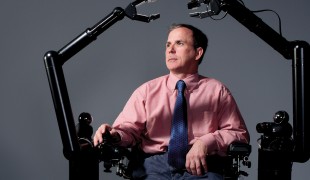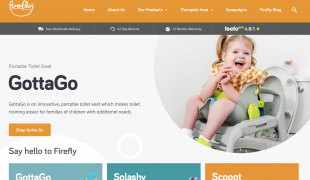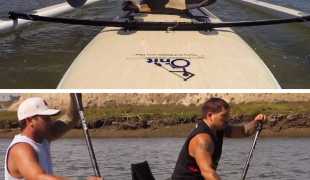- 4619
- 356
- 14
- 9
- 0
- Help Ukraine
About the solution
He had the idea to create extended car pedals so he could have a better and more independent daily life.
Mohalatsi represents many students with disability in higher education institutions who through various circumstances have been disadvantaged from driving a normal car. Many of them are at risk of causing fatal accidents if they continue to drive cars unaided.
Desperate to improve and change his day-to-day ordeal, he approached Product Development Technology Station (PDTS), a technology innovation agency at CUT, with an idea of extended pedals and explained it to Kamohelo Mokoena, Mechanical Engineering graduate from Central University of Technology (CUT) who advised him to draw up a proposal and submit it to PDTS for consideration.
“This great idea was inspired by the student himself. He approached and explained his idea to us and kindly asked if we could manufacture the pedal extension for him, which was a great, but challenging experience”, said Mr Ludrick Barnard who heads a team of young and innovative minds and experts.
“We took the idea, did research, and came up with the concepts and design. I mentored my intern on what and how it should be done and we got it right,” he concluded.
He and Mokoena started modelling the idea and came up with a perfect product that liberated the student. With the help of PDTS, Mabilietse is able to drive himself anywhere without hassle.
Today, he drives himself around the streets of Bloemfontein and from home to campus. “I am pleased and grateful for the wonderful work that PDTS has done for me. It has helped me a lot. I do not depend on people to take me from A to Z now. I am independent and enjoying every moment,” said Mabilietse.
The idea of these extended pedals is the first of its kind in the country and can make CUT stand proud at the lead of innovation for the country’s motor industry. “We used six millimetres of normal steel plate (which a person can use if he wants to go into mass market), carbon fibre, canopy clips, and rubber. The total cost for the material was around 40€,” said Mokoena.
Adapted from: http://bit.ly/2upjDb2
More info: http://www.nunnovation.com/
This solution shall not include mention to the use of drugs, chemicals or biologicals (including food); invasive devices; offensive, commercial or inherently dangerous content. This solution was not medically validated. Proceed with caution! If you have any doubts, please consult with a health professional.
DISCLAIMER: This story was written by someone who is not the author of the solution, therefore please be advised that, although it was written with the utmost respect for the innovation and the innovator, there can be some incorrect statements. If you find any errors please contact the patient Innovation team via info@patient-innovation.com
-
-
472
-
0
-
7520

Paralyzed man designs innovative wheelchairs
CAREGIVING
MOVING IN A WHEELCHAIR: Moving using a wheelchair.
Grip
Rubgy
Basketball
Paralysis
Cervical spinal cord injury/Tetraplegia
Assistive Daily Life Device (to help ADL)
Assistive Technology access
Walking Aid (wheelchair/walker/crutches)
Restoring mobility
Replacing lost limbs
Promoting self-management
Promoting inclusivity and social integration
Recovering from Traumatic Injuries
Preventing (Vaccination, Protection, Falls, Research/Mapping)
Caregiving Support
Neurology
Orthopedics
Physical Medicine and Rehabilitation
United States
-
-
-
260
-
0
-
2884

Collaborator James Leckey makes equipment to improve the quality of life and social inclusion of children with special needs
MOVING IN A WHEELCHAIR: Moving using a wheelchair.
BODY BALANCE: Maintaining body balance
STANDING UP: Standing up from a seated position
Playing
Neuromuscular Disorders
Assistive Daily Life Device (to help ADL)
Walking Aid (wheelchair/walker/crutches)
Assistive Technology access
5 Senses support devices: (glasses, hearing aids, headphones...)
Restoring mobility
Promoting self-management
Managing Neurological Disorders
Promoting inclusivity and social integration
Maintaining Balance and Mobility
Raise awareness
General and Family Medicine
Neurology
Orthopedics
Pediatrics
Physical Medicine and Rehabilitation
United States
-
-
-
277
-
0
-
4574

Paddleboard for wheelchair users
Surfing
Social interaction
Paralysis
Amyotrophic Lateral Sclerosis
Cerebral Palsy
Muscular Dystrophy
Limb Amputation
Bone Disorders (Decalcification, Bone Deformity, Bone Fracture, Bone Infection)
Educational/Leisure device (book, toy, game...)
Difficulty walking or moving
Difficulty coordinating movements
Paralysis of the legs and lower body
Joint deformity
Restoring mobility
Promoting self-management
Promoting inclusivity and social integration
Maintaining Balance and Mobility
Medical Genetics
Neurology
Orthopedics
United States
-
 en
en